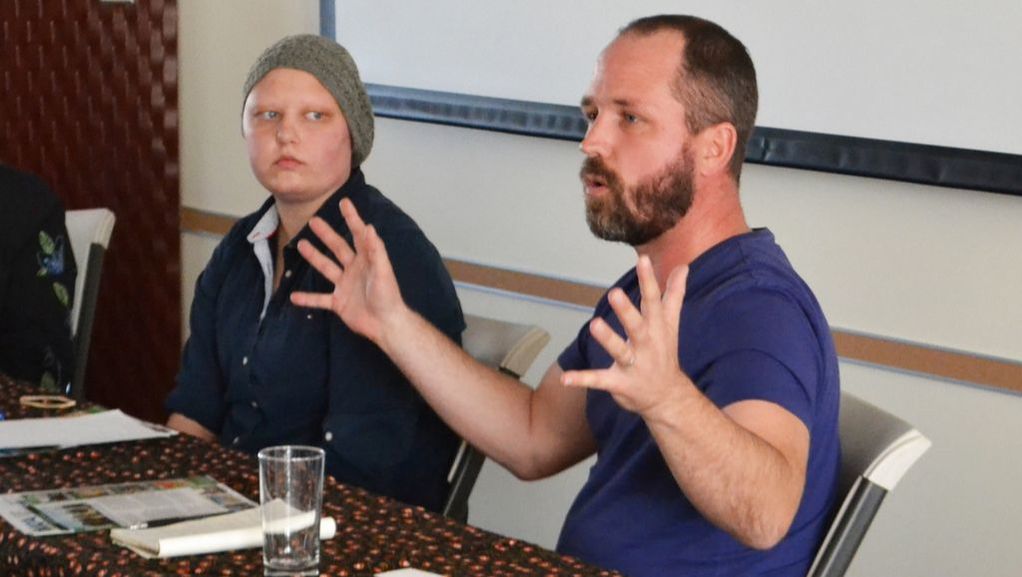|
On October 24th, 2018, the Chicago Tribune published an article pointing out a discrepancy between how city officials count the number of homeless people in Chicago and how advocates estimate the figure. That same day, participants gathered at ICA GreenRise to get a lay of the land on homelessness in the Uptown community as part of a series meant to catalyze discussion on localized challenges. For Conversations on Social Justice: Landscape of Homelessness in Uptown, ICA tapped two organizations that currently operate out of GreenRise and serve homeless clients from Uptown and beyond.
Mary Ne Castro of Sarah’s Circle spoke first, explaining that while the organization specifically serves single, adult women, the conditions of service end there. There are no prescribed programs at Sarah’s Circle, part of an emphasis on meeting clients ‘where they are’ rather than imposing rules and regulations on them. Ryan Spangler, speaking from years of on-the-ground experience with Heartland Alliance Health, echoed this sentiment, speaking of a housing-first approach rooted in harm reduction. The idea is that healing can only occur when clients have stable housing, and that any barriers to achieving that stability actually cause additional harm. For example, some clients seeking housing also struggle with drug and alcohol addiction. Heartland Alliance allows clients to continue using drugs and drinking while settling into a new housing situation. As Ryan put it, “the short answer is: you just do it”. The guest speakers then stepped out from behind the panelists’ table and joined participants at the cluster of round tables to join in processing the issue of homelessness as a group. ICA staff member Samantha Sainsbury led those assembled through a facilitated dialogue activity. Common themes emerged, both spoken and scrawled in pen across the table: harm reduction, housing first, fostering dignity and choice, preserving local diversity, investing in communities. Comments are closed.
|
|
4750 N Sheridan Rd, Chicago, IL 60640
773 769 6363 x 335 |
Copyright 2022. The Institute of Cultural Affairs. All rights reserved.

